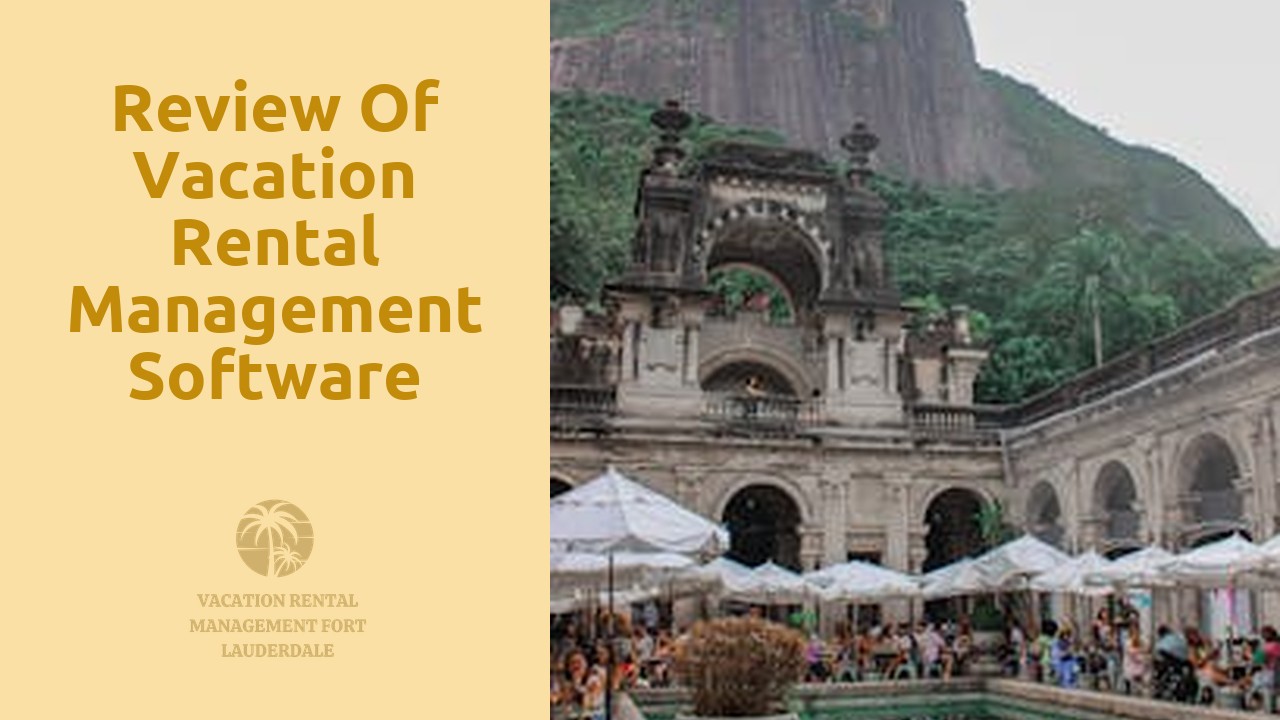
Review of Vacation Rental Management Software Solutions
Table Of Contents
How to Effectively Implement Vacation Rental Management Software
To effectively implement vacation rental management software, it is crucial to begin by conducting a thorough analysis of your specific business needs and requirements. This initial step will help in identifying the key features and functionalities that are essential for streamlining your operations and improving overall efficiency. By taking the time to assess your current processes and pain points, you can select a software solution that aligns with your organizational goals and objectives.
Once you have chosen a vacation rental management software that meets your criteria, the next vital step is to ensure proper staff training and onboarding. Investing time and resources into training your team on how to effectively use the software will not only enhance their productivity but also lead to a smoother implementation process. By providing comprehensive training sessions and ongoing support, you can empower your staff to leverage the full capabilities of the software and maximize its benefits for your vacation rental business.
Staff Training and Onboarding
When it comes to implementing vacation rental management software, one of the key components for success is efficient staff training and onboarding. In order to fully utilize the capabilities of the software, it is crucial for all staff members to be well-trained and familiar with the system. This training should be comprehensive and ongoing to ensure that all employees are proficient in using the software to its full potential.
A structured onboarding process can help new staff members quickly adapt to the software and feel confident in their roles. By providing hands-on training, clear guidelines, and continuous support, employees can effectively transition into using the vacation rental management software. Investing time and resources into proper staff training and onboarding will not only lead to increased efficiency and productivity, but also a smoother overall operation of the vacation rental business.
The Future of Vacation Rental Management Software
As technology continues to advance, the future of vacation rental management software appears to be increasingly promising. One key area of development lies in artificial intelligence integration, which is set to revolutionize the way rental properties are managed. By leveraging AI capabilities, software solutions can automate repetitive tasks, enhance decision-making processes, and personalize the guest experience.
Moreover, the future of vacation rental management software is likely to emphasize seamless integration with other relevant technologies. This interconnected ecosystem can enable property managers to streamline operations, optimize pricing strategies, and deliver exceptional service to guests. With the combination of AI integration and tech synergies, the future landscape of vacation rental management software is poised for significant growth and innovation.
Artificial Intelligence Integration
Artificial Intelligence (AI) integration has emerged as a game-changer in the realm of vacation rental management software. By harnessing the power of AI algorithms, property managers can streamline operations, enhance guest experiences, and drive profitability. From predictive analytics to dynamic pricing strategies, AI enables vacation rental businesses to optimize their listings and stay ahead of the competition.
One of the key benefits of AI integration in vacation rental management software is its ability to personalize the guest experience. By analyzing data on guest preferences and behaviors, AI can suggest tailored recommendations for activities, dining options, and local attractions, thus creating a more customized and memorable stay for guests. Additionally, AI-powered chatbots can handle guest inquiries promptly, provide real-time assistance, and even anticipate guest needs, leading to higher satisfaction levels and improved overall guest reviews.
Case Studies on Successful Implementation of Vacation Rental Management Software
Case studies provide valuable insights into the successful implementation of vacation rental management software, showcasing real-life examples of how businesses have leveraged these solutions to enhance their operations. For instance, a vacation rental agency in Florida saw a significant increase in their occupancy rates after adopting a comprehensive management software. By streamlining booking processes, automating tasks, and gaining access to valuable data analytics, they were able to attract more guests and effectively manage their properties.
Similarly, a property management company in California experienced a substantial improvement in their overall efficiency and guest satisfaction levels by integrating a tailored vacation rental management software. With features such as online booking capabilities, automated guest communication, and maintenance scheduling tools, they were able to provide a seamless experience for both guests and property owners. These case studies underscore the importance of choosing the right software solution and implementing it effectively to drive success in the vacation rental industry.
Increased Occupancy Rates
To increase occupancy rates, vacation rental managers must leverage the power of data-driven insights and analytics. By analyzing booking trends, customer preferences, and market demand, managers can optimize pricing strategies and promotional campaigns to attract more guests. Moreover, implementing dynamic pricing algorithms can help adjust rates based on real-time factors such as seasonality, demand fluctuations, and competitor pricing, ultimately maximizing occupancy rates and revenue.
Another key strategy to boost occupancy rates is to enhance the visibility and attractiveness of rental properties across various online platforms. By utilizing professional photography, well-crafted property descriptions, and engaging listing content, managers can capture the attention of potential guests and drive more bookings. Additionally, investing in search engine optimization (SEO) techniques and leveraging online travel agencies (OTAs) can increase the discoverability of properties and improve their ranking in search results, leading to higher booking rates.
Related Links
10 Essential Tips for Vacation Rental Property ManagementThe Ultimate Roundup of Vacation Rental Management Tools
The History of Vacation Rental Management in Fort Lauderdale
Why Compliance with Reporting Requirements is Important for Vacation Rental Management
Why Effective Owner Communication is Essential in Vacation Rental Management